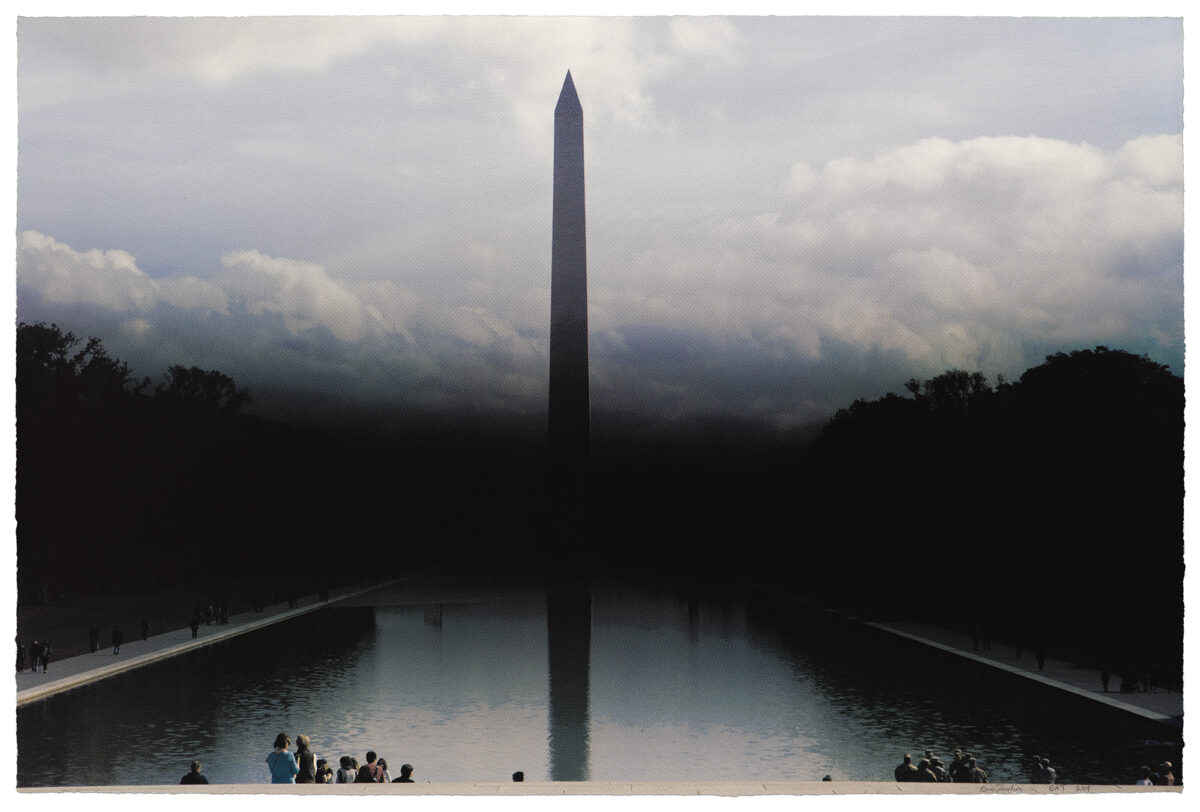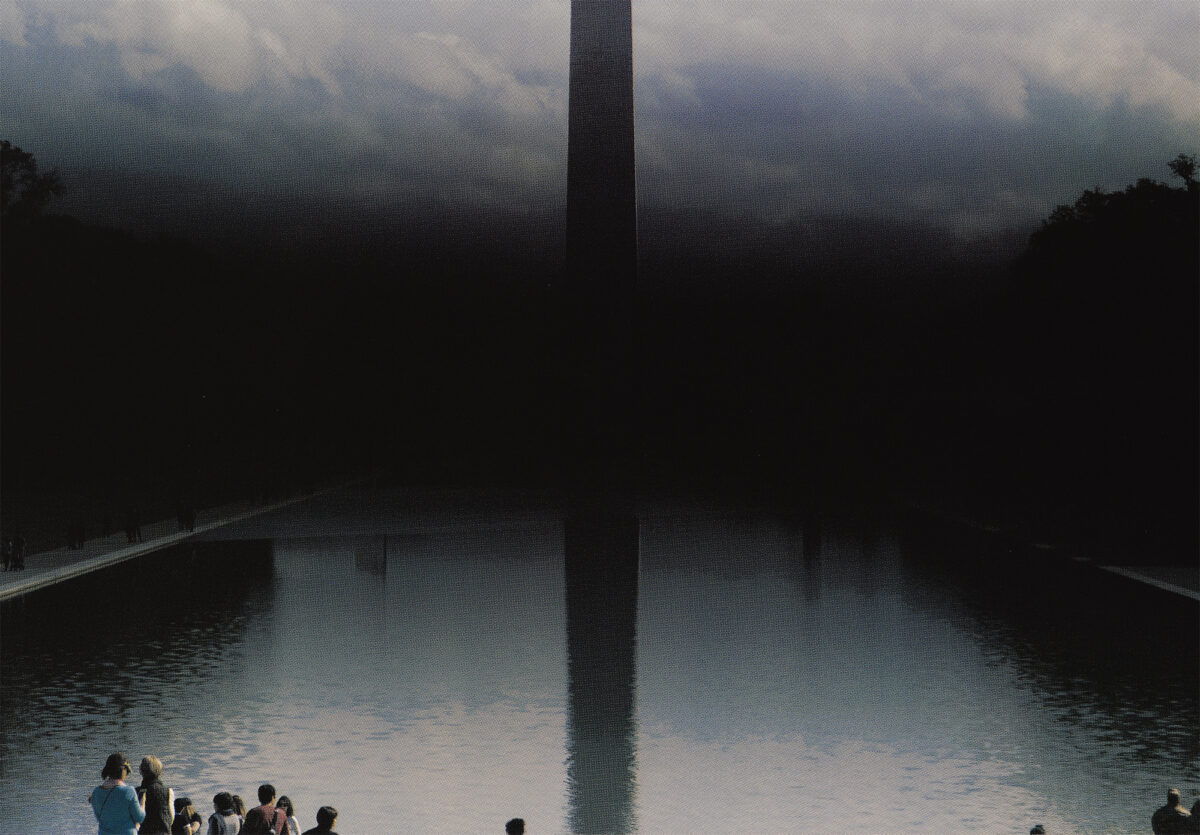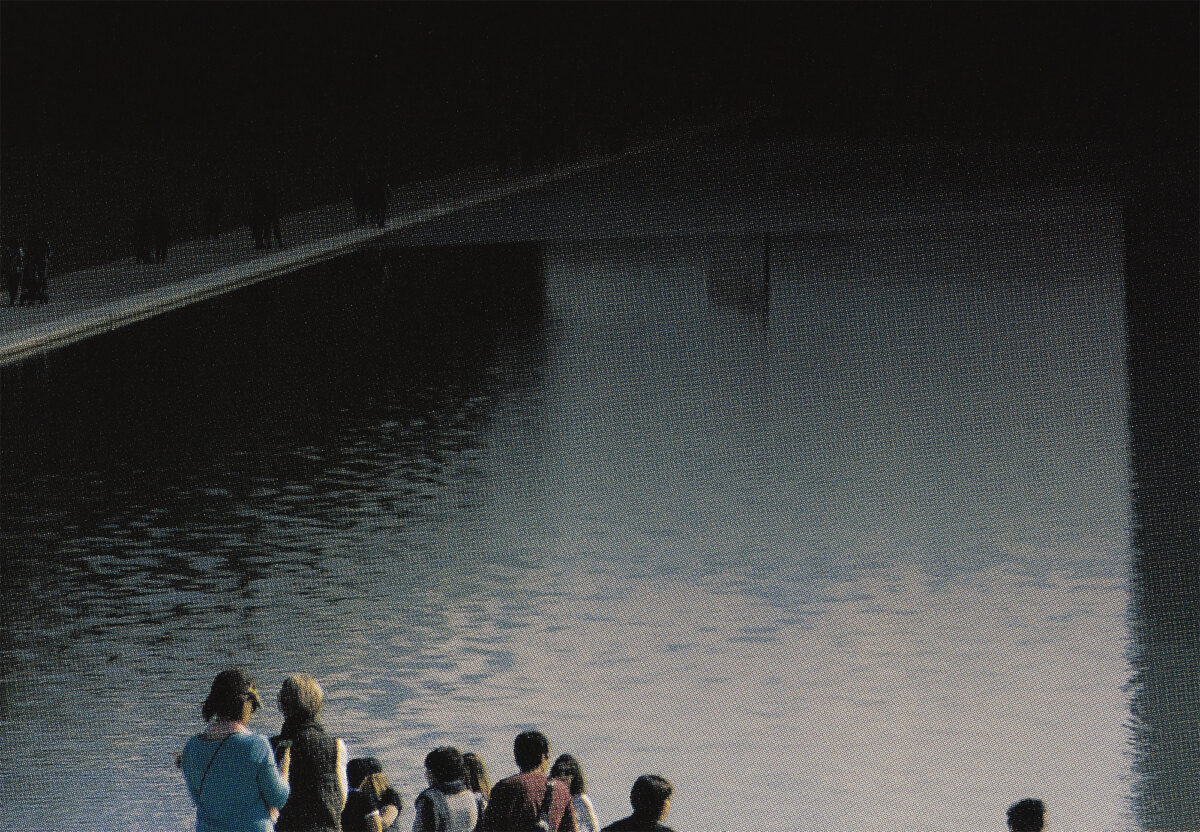


Edition of 20
Paper size: 40 x 60 inches (101.6 x 152.4 cm)
Signed and numbered lower right in graphite
(Inventory #31760)
Edition of 20
Paper size: 40 x 60 inches (101.6 x 152.4 cm)
Signed and numbered lower right in graphite
(Inventory #31760)

“I think, as an artist, our jobs are to ask the hard questions.”
—Nona Faustine
In her series, “My Country,” Nona Faustine confronts and interrogates iconic American monuments, such as the Lincoln Memorial and the Statue of Liberty, using her camera to reframe conventional, colonialist perspectives, and reinserting some of the truth and trauma behind these memorialized spaces. The series was first created alongside Faustine’s critically received body of work, “White Shoes,” which garnered attention for the photographs’ provocative confrontation of slave sites throughout New York City, sites that had been obscured from the history books and contemporary life.
History fascinates, frustrates and motivates Faustine; in particular, the monuments and myths of American history—the very ones rooted in racism—that still dictate the framing of American identity and pride. Faustine is African American, and her family’s history has a direct line to African enslavement. Inherent to Faustine’s practice is not only paying tribute to the suffering of her own ancestors, but also to the status of African Americans in their own country, especially vis-a-vis the commemoration of the African American contributions to this nation’s history and society, which, until recently, have at best been grossly ignored, and at worst stolen and absorbed into white narratives as their own. Faustine’s series looks at America’s monuments and how history is celebrated and, she says, “how history is turned around. What is left out, what is included, what are the lies. And, who gets celebrated.”
Faustine’s work isn’t a mere reductionist political statement, a protest to the past. Many American monuments and commemorative statues lionize historical figures who’ve committed atrocities against their own people, especially their fellow citizens of color. Faustine’s work asks instead to expose the real events and reinsert those truths into the narratives that comprise American history. In the work “In Praise of Famous Men No More, Museum of Natural History,” is depicted the statue of Teddy Roosevelt outside New York’s American Museum of Natural History, where the infamous “Rough Rider” on horseback is flanked by both an African man and an Indigenous chief. Through her camera’s focus on an element in front of the statue, Faustine slashes the scene with a thick red line, which, to her, represented the erasure of African American history embedded in America’s most iconic monuments.. That statue was vandalized as part of the “Decolonize This Place” protests, which partially inspired Faustine, but partially tripped her. “I go back and forth. Even as a descendent of enslaved people. It is very hard, because this stuff has been ingrained in us. We have been taught to think a certain way about our country and our presidents. But when I look at the statue, it does bother me that they are below him.” The statue has since been removed.
About the Artist
Nona Faustine is an award-winning photographer and visual artist born and raised in Brooklyn, New York. She is a graduate of the School of Visual Arts and The International Center of Photography at Bard College’s MFA program. Her work focuses on history, identity, representation, evoking a critical and emotional understanding of the past, and proposes a deeper examination of contemporary racial and gender stereotypes.
Faustine’s images have received worldwide acclaim and have been published in a variety of national and international media outlets such as Artforum, New York Times, Huffington Post, Hyperallergic, The Guardian, New Yorker Magazine, and Los Angeles Times, among many others. Faustine’s work have been exhibited at Harvard University, Rutgers University, Maryland State University, the Studio Museum of Harlem, the African American Museum in Philadelphia, Schomburg Center for Black Research in Harlem, the International Center of Photography, Saint Johns Divine Cathedral, Tomie Ohtake Institute in Sao Paulo, among other institutions. Her work is in the collection of the David C. Driskell Center at Maryland State University, the Studio Museum of Harlem, the Brooklyn Museum, and recently, the Carnegie Museum in Pittsburgh, Pennsylvania. In 2019, Faustine was the recipient of the NYSCA/NYFA Fellowship, Colene Brown Art Prize, Finalist in the Outwinn Boochever Competition of the National Portrait Gallery and selected to be the first inaugural class of Kehinde Wiley’s Black Rock Senegal Residency.
Nona Faustine (b. 1977, Brooklyn, NY; d. 2025, New York City) was an award-winning photographer and visual artist born and raised in Brooklyn, New York. She was a graduate of the School of Visual Arts and The International Center of Photography at Bard College’s MFA program. Her work focused on history, identity, representation, evoking a critical and emotional understanding of the past, and proposed a deeper examination of contemporary racial and gender stereotypes.
Faustine’s images have received worldwide acclaim and have been published in a variety of national and international media outlets such as Artforum, New York Times, Huffington Post, Hyperallergic, The Guardian, New Yorker Magazine, and Los Angeles Times, among many others. Faustine’s work have been exhibited at Harvard University, Rutgers University, Maryland State University, the Studio Museum of Harlem, the African American Museum in Philadelphia, Schomburg Center for Black Research in Harlem, the International Center of Photography, Saint Johns Divine Cathedral, Tomie Ohtake Institute in Sao Paulo, among other institutions. Her work is in the collection of the David C. Driskell Center at Maryland State University, the Studio Museum of Harlem, the Brooklyn Museum, and recently, the Carnegie Museum in Pittsburgh, Pennsylvania. In 2019, Faustine was the recipient of the NYSCA/NYFA Fellowship, Colene Brown Art Prize, Finalist in the Outwinn Boochever Competition of the National Portrait Gallery and selected to be the first inaugural class of Kehinde Wiley’s Black Rock Senegal Residency.
10 Newbury Street, Boston, Massachusetts 02116
617-262-4490 | info@krakowwitkingallery.com
The gallery is free and open to the public Tuesday – Saturday, 10am – 5:30pm